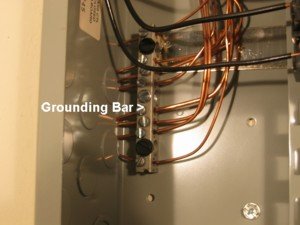Hi
My PC is freezing from time to time. I have tried everything including a 2nd PSU, and is down to either the MB or the processor being bad. For practical reasons, I can't test these.
Today I noticed that my case is shocking me when I touch my wall, and figured that maybe this is the reason why my PC is freezing, as I know my PC isn't grounded.
Could this be causing my freezes? Any thoughts on the matter will be greatly appreciated.
Keba
What I am about to say is not about the freezing...however, you need to get your computer plugged into an outlet that IS grounded immediately. This is for safety reasons, for you and your computer. I am an electrician, and though your machine is running, you need to power it down and plug it into a grounded outlet strip - a surge protector would be better - and then plug in to a grounded outlet.
I thought the PC is grounded when you plug it in? I guess not...
No, not just plugging it in. There has to be a three-hole outlet (and the third, round hole) is the ground connection. On the other side of the plate, that ground hole is actually a connection to the "ground wire", which is connected to.... you guessed it....the ground (they call it "earth" in England). In the event of a short, the ground is designed to take straying electrical paths and send them to ground where you and your equipment wont be harmed. How this works, is electricity takes the shortest - and/or best - path to ground.
I say shortest and/or best, because the shortest path possible for electricity to take isn't necessarily the best. If the electrical charge sees something as a better conductor, it make take a longer path but as there is less resistance because of a better conductor it has "found", it will take that route instead.
If something goes wrong electrically, a short in your computer, it could go to the chassis and fry your motherboard, CPU or most anything, as they offer a better path being electronic components with tin and copper properties.
True story, I don't remember which state it happened, though : lightning hit someone on a golf course miles away from where she was golfing. The lightning could have hit a tree, but this lady was holding a metal golf club and it hit the club instead. Why ? Better conductor than say a tree, even though a tree would be higher and therefore, closer to ground.
In the OP's case, by his touching the wall, there may have been some moisture on his hand. And when you touched your case, the lack of a ground caused some electrical charge to go from your case, NOT to ground as your computer isn't grounded, to the wall which is entrenched into the ground via the foundation of your house. At that time, it was the shortest and best path to ground. A ground wire connected properly in an outlet would have taken that charge to ground, and you wouldn't have felt anything.
